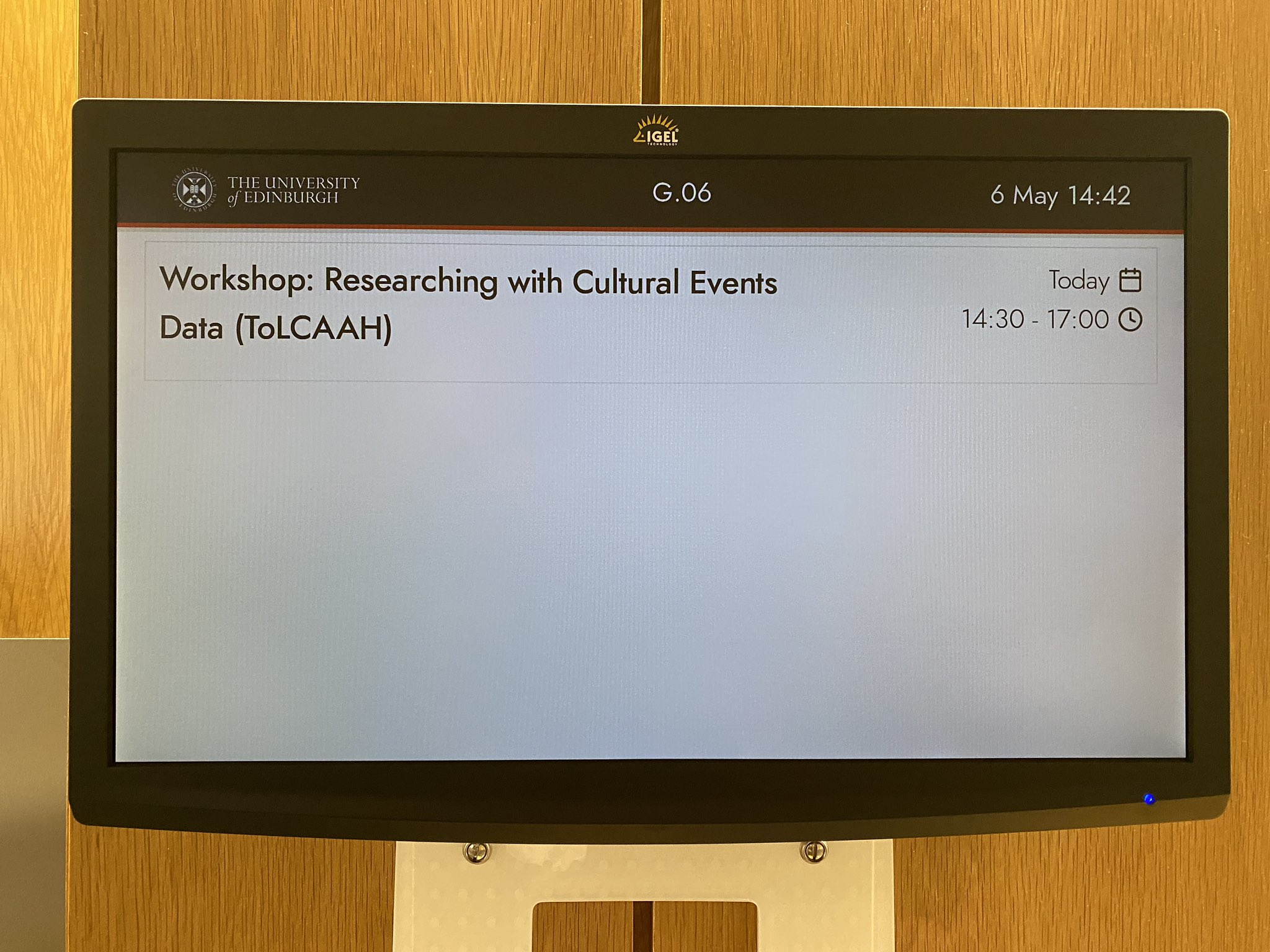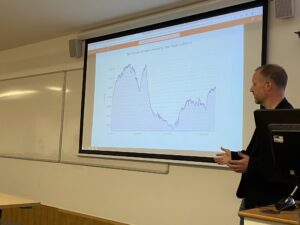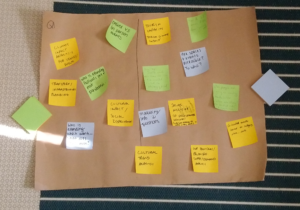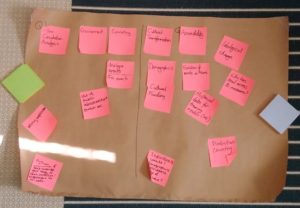Workshop PART ONE

On Friday 6 May we held an in-person workshop, ‘Researching with Cultural Events Data’, to brainstorm how researchers could engage with and use a cultural events data service. Apart from it being lovely to see people face-to-face, the workshop was a useful exercise in understanding user needs.
We began with presentations from Prof Melissa Terras on the ToLCAAH project, from Brendan Miles, Director at Data Thistle, on their cultural events data, and from Dr Rosa Filgueira on how to work with, understand, manipulate and analyse the data.

After that, we split into two breakout groups to brainstorm uses for the data and specifications for the data service. We captured the responses visually, shown in the images below. The text in the images is also transcribed below.
Question One:
Would access to this data be useful for your own research? What sorts of questions would the data enable you to address?

[image description: Sticky notes with the following text. Climate impact analysis for venues / events. Transport / infrastructure planning. Online vs in person events. Who is attending festivals pre and post pandemic? Cultural impact / social deprivation. Who is attending which events – what does that mean? Tourism capacity / tourism climate impact. Are spaces and events accessible? To who? Marketing info and questions. Cultural trend analysis. Social inclusion of performance industry (who can afford to work in the arts?), entrepreneurial dropout during periods of economic stress. For providers / producers: supply / demand analysis. Using tags: LGBTQ events – were these the first to be cancelled? How do ‘kids’ events differ from ‘grown ups’ events? When people are going on walking events / outdoor where are they? How does that link to infrastructure? Co-locate events based on category, place, date.]

[image description: Sticky notes with the following text. Ideological change. Who has local access to museums? Production country. Evolution of events in time. Accessibility. Historical data for training models (machine learning). Cultural transformation. Demographics. Cultural funding. Commuting. Analogue events. Free events. Environment. Film circulation analysis. Use of public infrastructure, strain, etc. Individuals: demographics, attendance, time of purchase. Policy implications.]
What did we learn?
We were delighted with the number and variety of research projects that the participants could think of using this data for. These included:
- The accessibility of spaces and events
- Audience demographics
- Climate impact analysis for venues / events
- Cultural trends analysis
- The distribution of cultural funding
- Evidence of cultural impact and social deprivation
- Historical data for training models (for machine learning)
- Ideological changes
- The popularity of online vs in person events
- Transport / infrastructure planning
A huge thank you to all the participants who gave their time and engaged so enthusiastically with our project.
We are also conducting research interviews and a survey (more info and link to survey – there’s a £50 book token up for grabs) to gain multiple perspectives on the uses and value of a UK cultural events data service.



